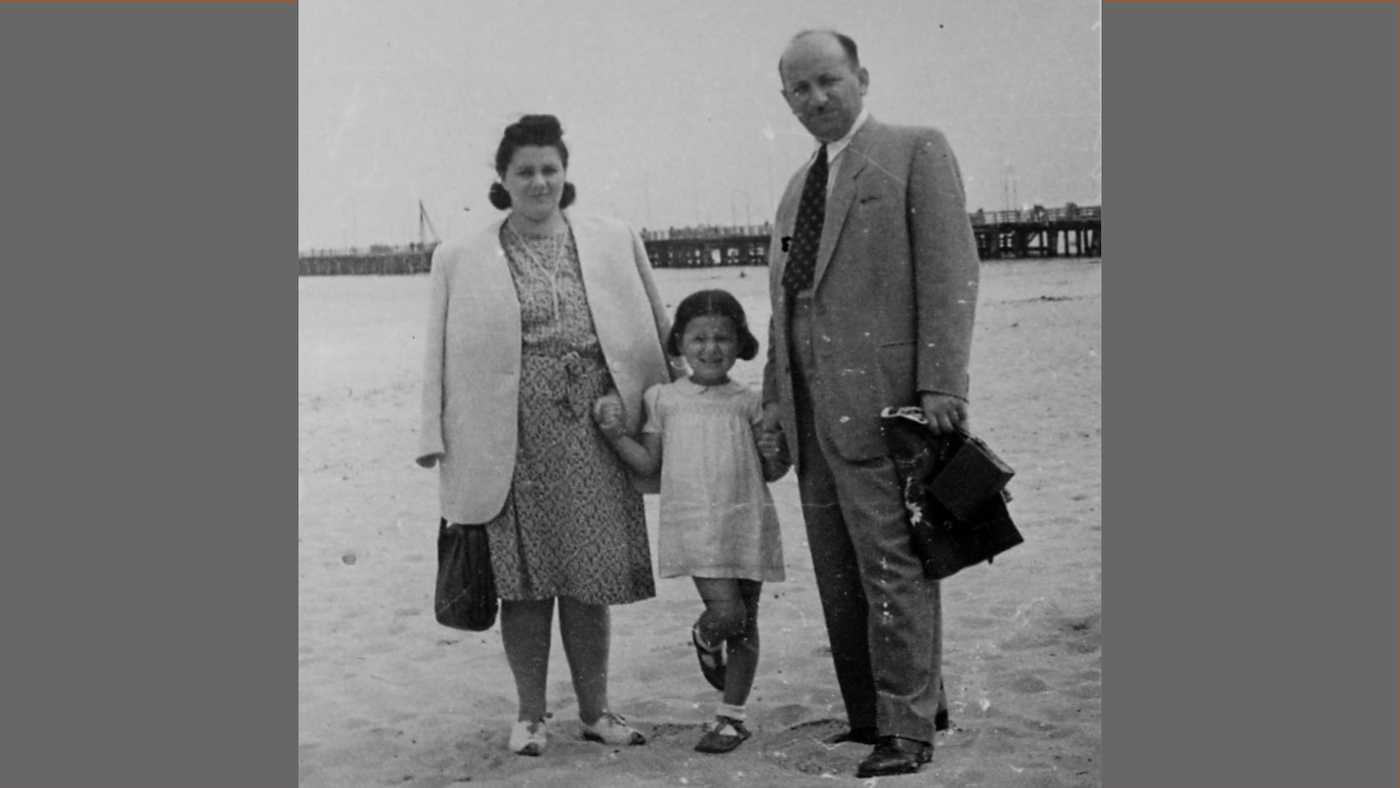They Were Called “Jewish Pigs”
It is a cold winter evening in 1944. A group of farmers sits around the kitchen table in Chyliczki, a small village near Warsaw. Even though it is only four o’clock, it is already dark outside. This is the only heated space in the two-room wooden farmhouse.
During the day, this area serves as kitchen, dining room, family room and washroom. At night, it doubles as a bedroom for the men – the farmer and the newly arrived refugee from burning Warsaw. The women, his wife, two teenage daughters, the female refugee and her little daughter share the other room.
In the cold Polish winters, the evenings are long. The fields are lying desolate, covered with a thick white, frozen blanket. During the day, the women are busy. The cow needs to be milked. The family, as well as the couple of pigs hidden from the Germans, must be fed. There is very little for the men to do. To kill time, they congregate, plan for the spring, grumble about the Nazi occupation and gossip. This evening they are assembled here, the house of one of their eldest.
Joining them on the sidelines is Andrzej, the refugee from Warsaw. They all know him as a hard worker, a smart, friendly man, always ready to help, to pitch in. He is also good company, often ready with a funny joke or an interesting story. They think him to be quite eccentric. He has a bizarre habit. Every day, he goes to the frozen river, makes a hole in the ice and bathes in the subzero water.
They know that he was bombed out of his house during the Polish uprising last August and has managed to escape deportation to a German forced-labor camp. He had arrived at this farmhouse last fall, asking for shelter for himself, his friend’s wife and her four-year old daughter. The woman’s husband was a soldier in the Polish army and was missing in action. All the farmers like him, admire his stamina and courage. His daily baths are becoming a legend in the area.
What they do not know, or even remotely suspect, is that the man, the woman who is really his wife and their child are Jews hiding on the surface with forged ID papers.
That particular evening, the conversation drifts to many things. Andrzej sits quietly listening. Suddenly his ears perk up as one of the farmers talks about a neighbor’s fat Jewish Pigs. “Jewish pigs?” He thought. What could that mean?
Cautiously, he asks, “How could pigs be Jewish? To my knowledge, Jews are not allowed to eat pig meat or even raise pigs.”
“You are, after all, a naïve city boy to even ask such a stupid question,” comes the answer. “The story is very simple: you know our neighbor, S. Well, last fall a Jewish family, husband, wife and three children came to ask for shelter. They were from Grodzisk, had identification papers claiming they were Catholic, but could not fool Mr. S. He set them up in his barn, then he went to the police to denounce them. The SS came, shot the whole family, right there in his fields. Then they made him dig a ditch and bury them in a common grave and left. Since then, he has been digging up the bodies, piece by piece and feeding them to his pigs. So now he has not only the fattest pigs in the area, but also the only Jewish pigs.”
Andrzej, sitting there listening, was my father. The woman was my mother, and I was the little girl.
Fifty years later, in 1994, I visited the village and the farm. I reconnected with the daughters of our family’s host as well as an old neighbor. They told me that village folks still talk about “Pan Andrzej”, the crazy man from Warsaw who hacked holes in the ice to take a bath.* But there was no more mention of the “Jewish Pigs.”
*My father couldn’t bathe with the men in the communal bath because he was circumcised.
Please leave your comments below.
Read more by Felicia Graber.


Having watched the Ken Burns documentary on the US and its response to the Holocaust, this story emphasizes what a dangerous world we live in. Thank you for sharing this story.